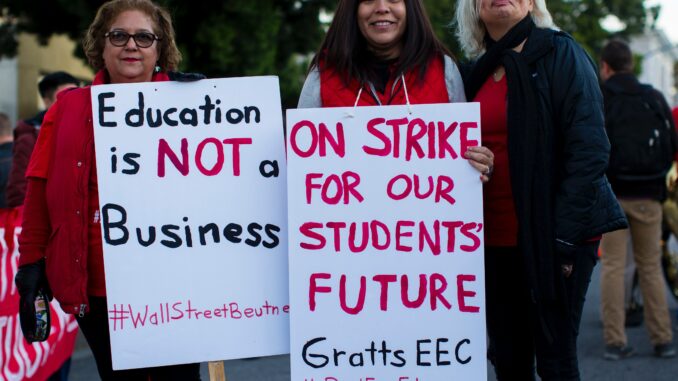
As reported by the BBC, more talks between government officials and unions are taking place as schools prepare for teachers’ strikes
Schools minister Nick Gibb said the two sides are expected to spend six hours discussing “pay but also other issues such as workload and the conditions of teachers in schools”.
Earlier this week, teachers from the NEU union voted in favour of strike action in England and Wales and seven days of strikes will take place in February and March. National and local strikes in Scotland have already begun.
Mr Gibb told BBC Breakfast that the government is negotiating with teachers, but said there are concerns about “inflation-busting pay settlements” which would mean embedding inflation into the economy “for the long term”.
On her way into the meeting, general secretary of the National Education Union Mary Bousted said there is no indication that the government is willing to negotiate, and that “there is no new money on the table”.
She added that “the pay award for next year is two per cent and clearly that is completely insufficient, not only to correct the cost-of-living crisis now, but also to correct the long-term decline in teacher pay over the last 12 years.”
Schools in England and Wales are preparing for their first national strike day on 1 February but ,in England, head teachers will decide whether their school needs to close.
Teachers do not have to stick to the curriculum on strike days, according to government guidance. So children could face changes to their lessons even if schools stay open.
The NASUWT union, which did not meet the legal threshold for strike action in its ballot, has sent guidance to its members on what they should do on strike days.
It says members are required to report for work but should not cover the work of colleagues, and should not agree to undertake online teaching to pupils from home if the school closes.




Be the first to comment